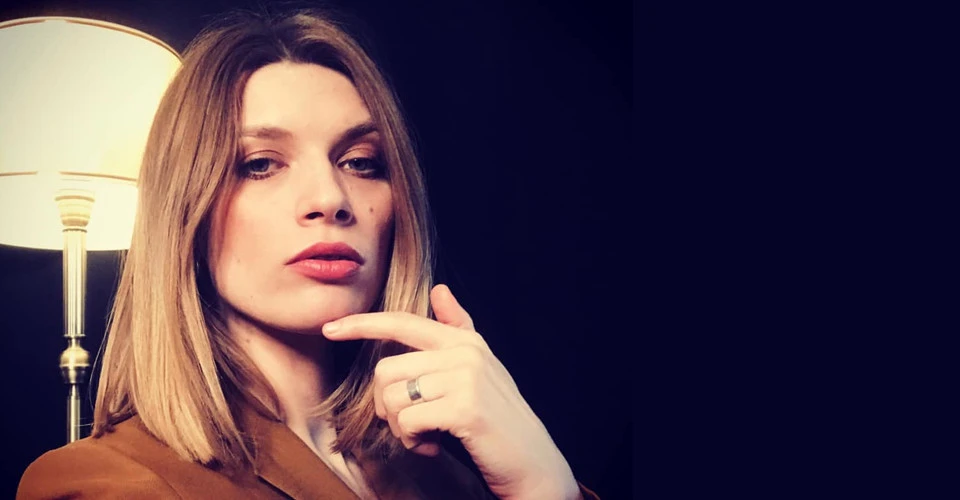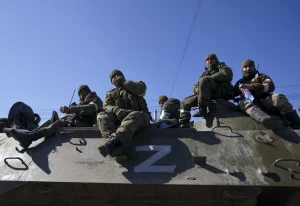
Where are Shoigu and Surovikin? Who will come for Putin's head?
The recent performance of Prigozhin's mutiny was necessary to see how artificial the scenery of great Russia is. Putin remains in power, but the defection of army personnel to Prigozhin is a sign that power in the Russian Federation can be taken. That the Winter Palace in the fall of 2017 resembles the current Kremlin. What is happening in the leadership of war criminals of the Russian Federation as of now?
Recent intelligence reports indicate that General Sergei Surovikin, a key figure in the Russian Army aka the "Armageddon," was initially detained, leading some to speculate about the possibility of public executions reminiscent of historical figures like Ivan the Terrible. However, after questioning, Surovikin was subsequently released, and here's the reason why.
Throughout Russia's prolonged conflict with Ukraine, the public face of their military campaign was primarily represented by President Vladimir Putin. About a week prior to the planned full-scale invasion, Russian news outlets extensively featured quotes from the Kremlin leader, creating the impression that he would personally lead the army into battle, akin to a medieval ruler. The impending victory of Russia's formidable military, often touted as the "second army of the world," seemed inevitable.
However, the attempt to capture Kyiv in three days was not successful, and over time, the strongest Russian forces were defeated in northern Ukraine, near Mykolaiv and in the Kharkiv region. That's why Gerasimov, Dvornikov, Surovikin, and Shoigu appeared from time to time in public. Putin wanted to share the public burden of military defeats.
Even under these circumstances, the Minister of Defense, Sergey Shoigu, played the role of the public commander-in-chief. Ironically, Shoigu has no military background and has spent his entire life in construction and in the Ministry of Emergency Situations. But Putin needs someone like the uncharismatic Shoigu to not appear weak in comparison. Russian leaders have always had a difficult relationship with the army and have been afraid of charismatic soldiers. They remember how Stalin and Khrushchev feared Marshal Zhukov coming to power. A more recent example is General Alexander Lebed. He gained popularity during the first Chechen war, had high support ratings, and started off as a successful governor. He could have been a strong competitor to Putin in the 2004 elections. However, Lebed was eliminated, crushing the hopes of Russian officers for their own leader.
That's why there are very few mentions of the real leader of the Russian army, Valery Gerasimov, in the Russian information space. Gerasimov's entire career has been in the army, rising from a platoon commander to the chief of the General Staff. He is known for his writings on military affairs. The Commander-in-Chief of the Armed Forces of Ukraine, Valery Zaluzhnyi, admitted in interviews that he taught military science based on Gerasimov's ideas, focusing on studying "hybrid war," which the Russian general specifically wrote about for the occupation of Ukraine.
What does this mean? In February 2013, a year before the Russian invasion of Crimea, Gerasimov spoke about modern hybrid warfare methods in one of his speeches. This strategy later became known as the "Gerasimov doctrine." It promoted the use of political, ethnic, informational, and economic measures alongside military actions. These factors were combined during the annexation of Crimea and the instigation of the war in Donbas in Ukraine.
Gerasimov has disappeared from public view before in Russia. After Russia's defeat in the Kharkiv direction last summer, the Russian general was not seen for about six months until he reappeared in winter 2023, just a few weeks before being appointed as the commander-in-chief of the theater of operations. This doesn't mean the Kremlin was planning to retire him. During that time, Russia was actively mobilizing and preparing for war in Ukraine, and Gerasimov, who had no political ambitions, was involved in training new soldiers.
Sergey Surovikin, on the other hand, received a lot of media attention throughout the year. He is known for his aggressive nature and will seize any opportunity for power.
Among Russian generals, Surovikin has one of the most interesting backgrounds. When he was 24, he commanded a battalion involved in the August 1991 protests. Three people were killed under an armored vehicle, and Surovikin was sent to prison for a few months. However, he was later released because he claimed he was following orders.
Surovikin was also involved in scandals related to the illegal purchase of a pistol. He gained notoriety for his violent actions during the Second Chechen Campaign. In 2004, one of his deputies shot himself after a heated argument in the general's office, leading to Surovikin being nicknamed "Armageddon."
When Surovikin took charge of the forces in Ukraine last October, he started with a missile attack on several Ukrainian cities, including the capital. Despite his reputation, Surovikin's image resembles that of a caricature thief from old movies rather than an exceptional strategist or commander.
However, any controlled experiment to find a scapegoat for Putin can quickly spiral out of control. Especially after Belarusian dictator Alexander Lukashenko came to Putin's aid, everyone saw the first signs of trouble. This will only encourage the sharks around the Kremlin to become more active in their pursuit of power, as Putin's reign comes to an end.
In any case, we are not particularly concerned about the power struggle over Putin's successor. The only positive aspect is that in this hunt for power, some of these sharks will end up being eliminated. As a result, these individuals will never set foot on our land.
- News












































